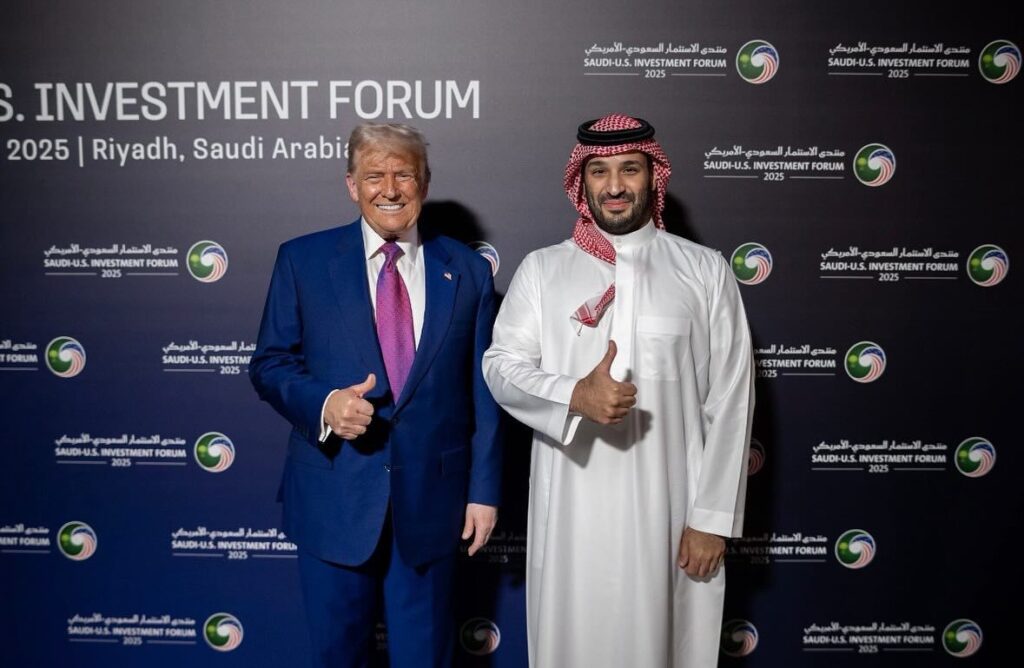
In a series of unprecedented moves, President Donald Trump has announced the lifting of longstanding U.S. sanctions on Syria and signaled a willingness to normalize relations with the country’s new leadership. This decision coincides with the signing of a historic $142 billion arms deal and a $600 billion investment commitment from Saudi Arabia, marking a significant shift in U.S. foreign policy in the Middle East.
A New Chapter in U.S.-Syria Relations
During his Middle East tour, President Trump met with Syria’s new president, Ahmed al-Sharaa, marking the first U.S.-Syria presidential meeting in 25 years. Trump announced the lifting of longstanding economic sanctions on Syria and encouraged Sharaa to normalize relations with Israel, expel foreign militants, and aid in defeating ISIS. (WSJ)
Sharaa, who helped oust former dictator Bashar al-Assad and was once aligned with extremist groups, pledged a new path focused on inclusive governance and rebuilding Syria. Trump’s decision, made after consultations with Saudi and Turkish leaders, was seen as a bold geopolitical shift, potentially altering regional dynamics and straining U.S.-Israel relations. (WSJ)
Economic Windfall: U.S.-Saudi Agreements
Parallel to the diplomatic developments with Syria, President Trump secured a record-breaking $142 billion arms deal with Saudi Arabia. This agreement includes advanced U.S.-made defense equipment and services, reflecting a deepening economic partnership. (Business Insider)
Furthermore, Saudi Arabia pledged a $600 billion investment commitment into the U.S. economy, encompassing sectors like energy, defense, technology, and infrastructure. This move aligns with Crown Prince Mohammed bin Salman’s Vision 2030 initiative to diversify the Saudi economy beyond oil. (Business Insider)
The Palestinian Question: A Notable Absence
Amid these significant geopolitical shifts, the issue of Palestine was conspicuously absent from discussions. This omission suggests a changing priority among Arab nations, who now appear to focus more on national interests and domestic stability rather than collective solidarity with Palestine.
Analysts note that Arab regimes must cater to public opinion by making mostly symbolic and token gestures in support of the Palestinian cause. On the other hand, no Arab state wants to confront Israel. For many of them, this has much to do with their relations with the United States, on which they rely for security and, in some cases, as a source of critical financial assistance. (Politics Stack Exchange)
Conclusion: A Transforming Middle East Landscape
President Trump’s recent actions indicate a significant realignment in Middle East policy, emphasizing economic partnerships and pragmatic diplomacy over traditional alliances and ideological commitments. The lifting of sanctions on Syria and the substantial economic agreements with Saudi Arabia underscore a shift towards individualized national interests.(Business Insider)
As the region navigates these changes, the long-standing Palestinian issue faces further marginalization, raising questions about the future of collective Arab support. Observers suggest that these developments may reshape the geopolitical landscape of the Middle East, necessitating a reevaluation of strategies and alliances.
For further information and updates on Middle East developments, stay tuned to our blog.




